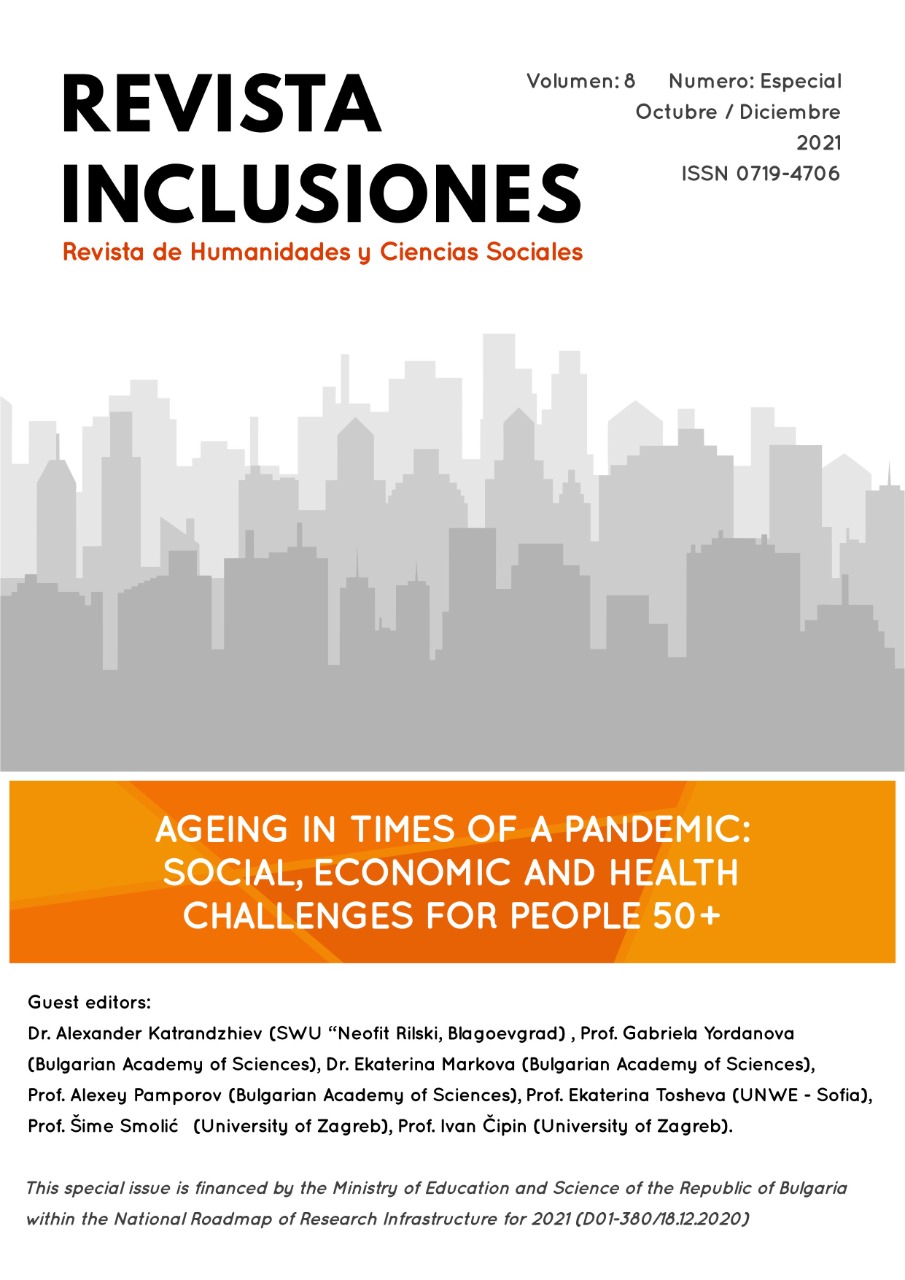FACTORS AFFECTING THE ACTIVE LIFE OF PEOPLE AGED 50 AND OVER IN EUROPE BEFORE AND DURING THE PANDEMIC
Resumen
This prospective longitudinal cohort study aims to identify the factors affecting the active life of people
aged 50 and over in Europe and point risk factors for inactivity both in ordinary working scenarios and
during the pandemic. Comparative analyses of Wave 7 and Wave 8 of Survey of Health, Ageing and
Retirement in Europe are used to assess the association between different factors and active life at
baseline and follow-up. The target population comprises 29971 adults aged ≥50 years, included in
both waves. Binary logistic regression models are estimated for both waves to examine the
association between active life and different socio-economic, health and psychological aspects.
Modification of baseline model for Wave 8 is used to show whether social contacts and digital
networks affect active life. A multivariate analysis shows that being a man, unemployed or
permanently sick, aged over 80, depressed, low educated, with low income, low extraversion,
openness and agreeableness, high neuroticism, living in a rural area or small town are independent
risk factors for inactiveness in ordinary working scenarios. During the pandemic there is a significant
positive relationship between inactiveness and risk factors like age over 80, unemployment, illness,
depression, lack of social and electronic contacts. On the other hand, predictors like gender man,
partnership, high income and stress related to Covid-19 decrease the probability older people to be
inactive. Most important factor associated with active life in both cases is the country of residence.
Thеse findings provide evidence of change in the behavior of older people in Europe because of the
global pandemic. Findings show a need to generation support in critical situations such as the one
created by the Covid-19 pandemic.
Descargas
Publicado
Cómo citar
Número
Sección
Licencia

Esta obra está bajo una licencia internacional Creative Commons Atribución 4.0.
Los autores retienen los derechos de autor y otorgan a Revista Inclusiones el derecho de publicación bajo Creative Commons Attribution 4.0 International (CC BY 4.0). Esto permite el uso, distribución y reproducción en cualquier medio, siempre que se otorgue la debida atribución al autor.











